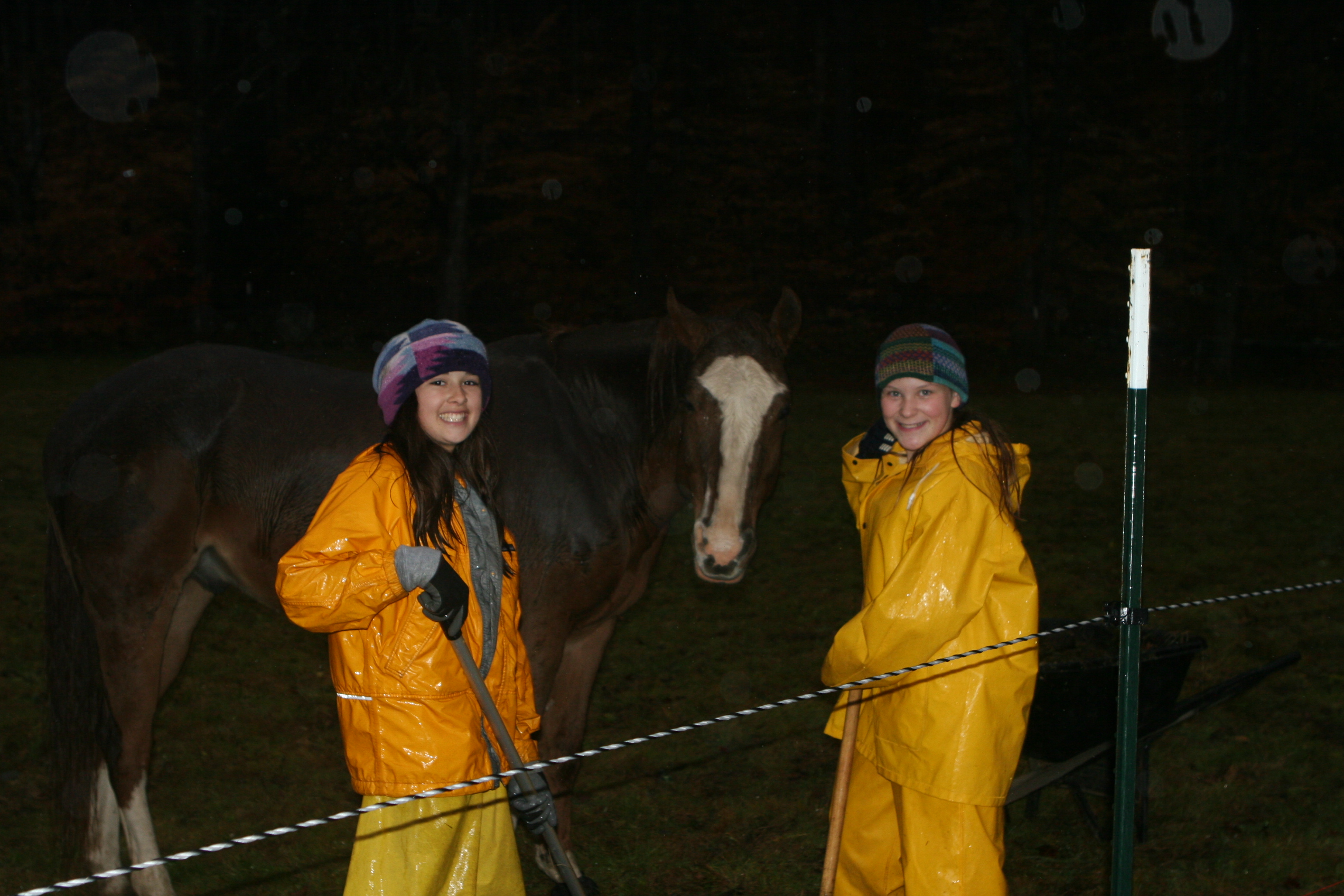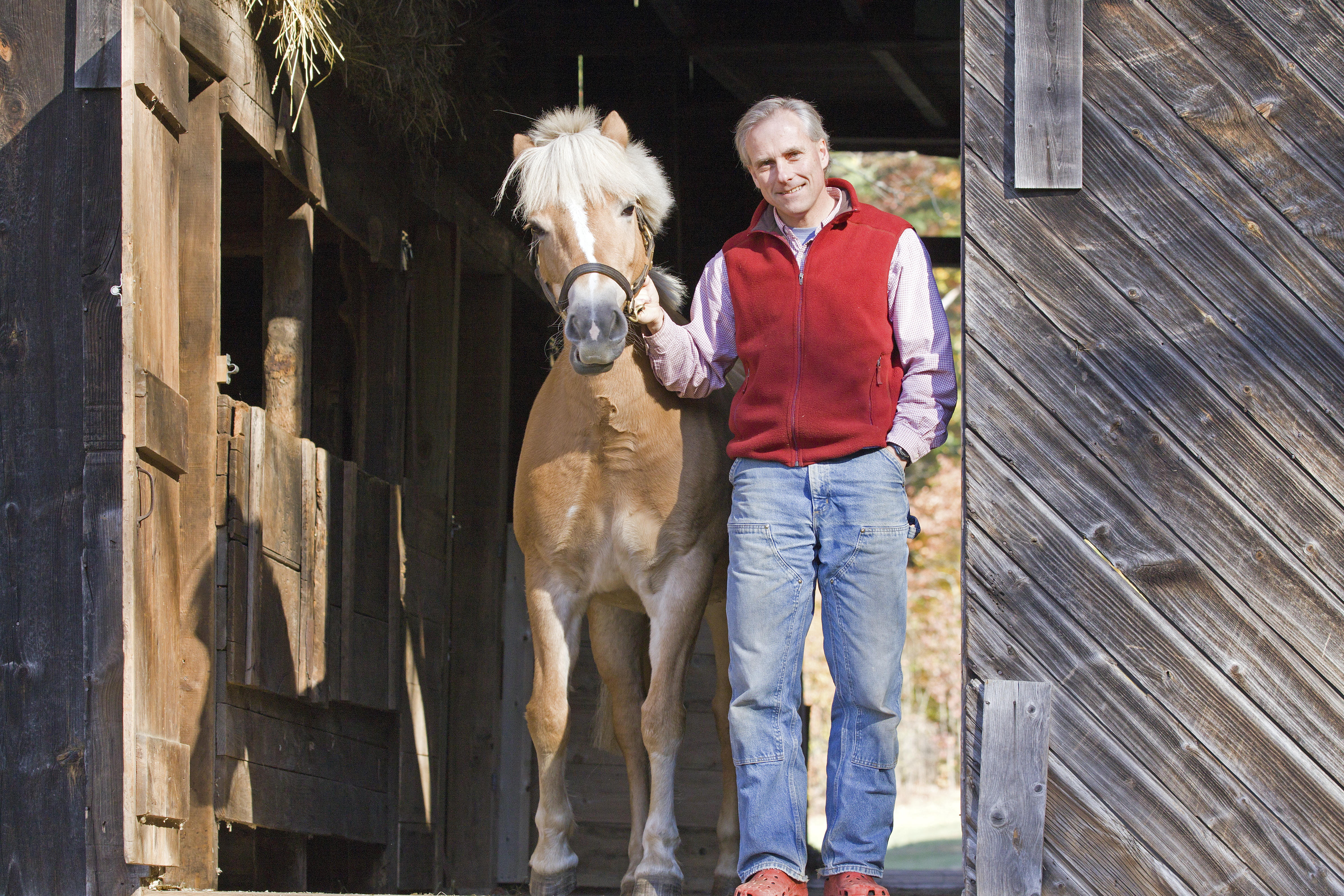Daily Instructions
In December it’s dark in the morning when you first hear the knocking of hooves in the barn. Out of bed and downstairs for boots and a hat and gloves; if the clouds have lifted, and it is cold, fill the buckets with hot water to melt the ice in the barn troughs; walk up the road to the barn and, when it dark, flip the switch of the battery lantern and pull flakes of alfalfa from the bails stacked against the wall on the far side of the stalls; and, with horses stomping or scratching the hemlock planks of the barn floor, measure out grain for Reme, Mac and Mariah and slide their buckets onto the wall hooks on the inside of their stalls, the sounds of plastic against wood and grain against teeth and the spilling of alfalfa pellets on the barn floor; pour hot water into the buckets to melt the ice, if it is cold and the ice has formed; and, if the hay is dusty, as it is this year, carry flakes out to the water and dip each flake into the bucket and hold for a few minutes before pulling out to drain and carry into the stalls; walk to the field and fill the water trough for the day and spread a few flakes out in the field if it is a work day and the horses will be lead out early; walk back down the road, unlock the door to the chicken barn and fill their water tank and check their grain.

If it is still December, in the late afternoon or evening, walk up to the barn as darkness is falling; if it is later in February or March, don’t turn on the light but fill the buckets with water, flake out hay and fill the grain buckets. The stalls, too—every day, you will need to muck with bucket and shovel and rake each of three stalls, scooping up wet pine shavings, shaking out shavings with the plastic manure rake; then wheel the barrow down the road to the manure pile once or, these days, sometimes twice, as Mariah’s reproachable stall habits fill the bucket more quickly; grab the halters and walk out to the field and slip them over the horses heads and lead them back to the barn; fill three water buckets with cold, fresh water; if it is cold—say, below 25F—get down the light blankets and pull on over the Mac and Mariah (and maybe Reme, who has a thicker coat) and fasten the buckle in front and back and under the belly; on colder nights, put on the quilted winter blankets and close up the stall doors to cut the wind; pull down bails of alfalfa from the loft when you run low and stack them; sweep out the barn; check the horses over; if you are riding, you’ll give them a good brushing and clean their hooves; when Chad and Tim come to work on the hooves, don’t forget to worm the horses; and, if it is warmer, and you have a little extra time, head out into the field and scoop some of the manure into a wheelbarrow and haul it down to the manure pile as the pastures always need to be cleaned; share carrots or apples, in season, with the horses; walk back down to the house; don’t forget to close the chickens in. Now repeat the above list of chores 365 days a year.

We are happy to be living on a farm where the pleasures of routines like these—unbroken chains of chores to be done—are shared among members of this family. Where the pleasures of working outside alongside large animals is not something to feel a burden as we share the chores and, of course, we are not fully invested in this work for our livelihood—with other jobs and responsibilities filling the hours of our days. Where being held accountable to our place in the world by a routine set by the needs of domesticated creatures other than yourself. Where lifting one’s body and spirit into the quiet mornings and afternoons pulls one back from the tussles and bustles of work and play beyond the stone bridge that leaps across Governor’s brook. Where travels to India and to California and to New York and other far fields, each with their own seductive pleasures and satisfactions, take their place not as places we long to be but as places where people like us are going about their daily routines—doing whatever things people do to fill their days with, we hope, as much fulfillment and pleasure as we feel every day when we awaken to the echoing of hooves in the barn, or fumble with cold fingers on the latch of a stall and then walk back down the road to the house.

Leave a Reply